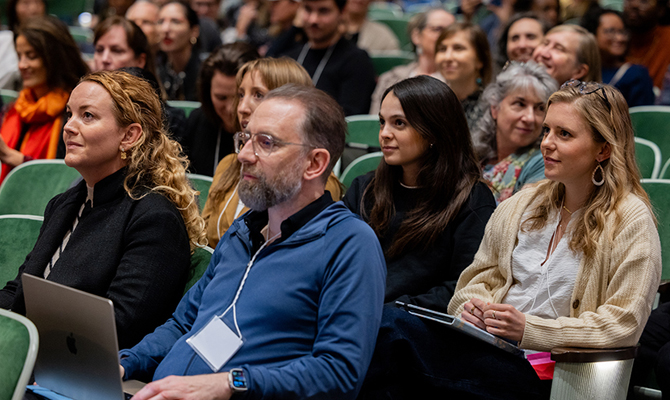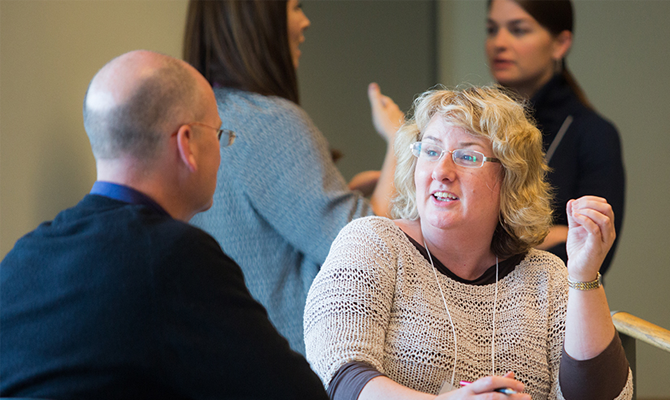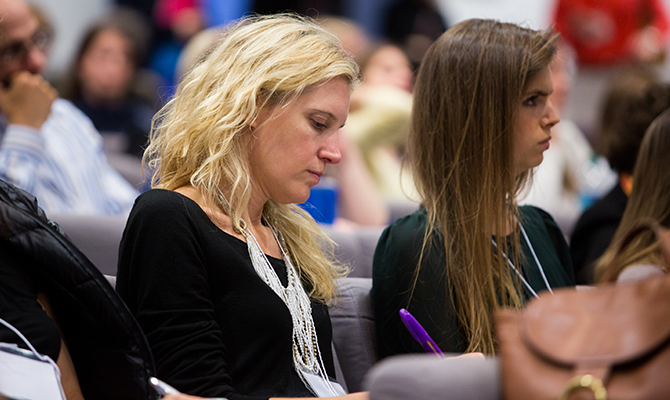
Professor of Psychology, Russell Sage College
Master of Applied Positive Psychology, University of Pennsylvania 2011
PhD in Counseling Psychology, Union Institute 1976
EdM in Counseling, Harvard University 1964
BA in Psychology, Boston University 1962
Dr. Ellen Cole (Master of Applied Positive Psychology ’11) remembers the moment she learned about positive psychology. It was 1998, the year Master of Applied Positive Psychology (MAPP) founder Martin E. P. Seligman presented his vision for a new psychology in his presidential address at the American Psychological Association annual convention. Ellen, an established counseling psychologist and longtime APA member, was moved. “It was a turning point for me,” she recalls. “Psychologists had been very good at figuring out what’s wrong with people, but not so good at figuring out how to live fulfilling lives. I wondered, why hadn’t I thought of this?” More than ten years later, while writing a letter of recommendation for a friend and colleague who was applying for the MAPP program, Ellen decided to submit her own application as well. “It was a mission,” she says. “I just had to do it.”
Ellen was 69 years old when she started the program; she had already served as a professor and a dean as well as a sex therapist and sex educator. Yet she felt both challenged by the program—for example, while augmenting her qualitative research background with quantitative skills—and respected by its faculty. “I loved being a student in MAPP,” says Ellen. “It was extremely meaningful to me—still is. The staff is wonderfully warm and I’ve developed lifelong colleagues and friends.” Some of those colleagues include the friend for whom she had written the recommendation letter—they roomed together during the on-campus weekend intensives—as well as her service learning project team, whom she hosted at her home in Albany while they developed their plan to benefit a local school.
When Ellen began planning her capstone project, her 70th birthday was approaching, and she was drawn to the question of how to apply positive psychology principles to aging well. “Age is NOT just a number,” she explains. “Our decades bring different challenges, different rewards, and different expectations.” She interviewed a variety of women in their 70s to identify some of the experiences they had in common, despite differences in religion, region, and racial background. What she learned is that the women experienced different challenges as they aged depending on other aspects of their identities—for example, first-generation Mexican American women worried about their children losing touch with their culture, while Black women found that racism created more pressure on their lives than ageism. But across the groups, older women had similar questions about where to live and what role their jobs and grandchildren should play in their lives. With co-author Jane Giddan, Ellen then adapted her capstone into a book titled 70 Candles! Women Thriving in Their 8th Decade, published in 2015.
After completing the MAPP program, Ellen has found other pathways to bring positive psychology principles into her work. She reads applications in the MAPP admissions process and incorporates tools such as the character strength assessment into her classroom at Russell Sage College. She published another book exploring aging and quality of life: Older Women Who Work: Resilience, Choice, and Change (2021). She has given talks on topics such as “aging in the right place for you,” an acknowledgment that different aging adults will have different needs in regard to residential living or remaining at home.
Even as she prepares to transition out of her university role—"I hate the word retire,” she adds, “I’m not going to bed!”—she continues to reflect on strategies for older adults to age positively. “Number one is to gather together. Don’t isolate, find your age mates,” she advises. “Number two is gratitude. Staying active is really important. And have pride in who you are! Don’t ever apologize for being 70… or 80… or 90. Honor who we are and love our wrinkles.”
“My number one signature strength is zest,” she says, in regard to her own plans. “I will honor that. I have a million things to do.”






